Collins initially flew into Hong Kong via the old Kai Tak airport with nothing but two bulky suitcases.
Welcome to the new Human Stories series by TMS, where we get to know Hong Kong through its many different faces. This month, we're speaking with Chris Collins, a martial artist and actor who teaches martial arts like Wing Chun and jiu-jitsu to students in Hong Kong.
FADE-IN:
- INT. MARTIAL ARTS GYM – DAY
WE OPEN on a modern, newly furnished martial arts gym. The floor is covered in a large checkered white and grey mat. To the left is a large mirror for students to watch their form. The front end of the room, closer to the entrance, is unmatted, designed as a foyer for visitors to have a seat. The furniture has a metallic industrial feel to it with 'IGNITE', the name of the gym, tastefully printed across the sides. The room is lit with natural lighting from large windows extending along the wall at the back.
We see two figures standing in the middle of the mat – it's Chris Collins and his gym manager Chi Ling. The manager smiles. Chris Collins remains composed with a relaxed expression on his face. He is quiet at first but exudes a calm that inspires confidence. One can tell he is ready to jump into action anytime.
ENTRANCE
A team of three from The Millennial Source, an awesome media company based in Hong Kong, walks into the gym. They have recently launched their new Human Stories segment, and it is clear that they are excited to get the interview going.
CHRIS
Thank you for coming to my studio today.
KRYSTAL
Thank you so much for letting us film here.
CHRIS
The pleasure is mine. Where would you like the cameras to face?
Perhaps over here, the lighting would be better.
We can also move the furniture if you need.
Formalities are exchanged, and the team bustles to set up the cameras.
CUT TO:
- INT. MARTIAL ARTS GYM, FACING ENTRANCE – DAY
FADE IN: Two tall chairs are set up facing each other. Chris Collins and the interviewer are sitting with their backs facing the entrance with the natural lighting on their faces. The mood of the room is light-hearted and friendly. The camera team gives the OK to begin.
CHRIS
I'm Chris. I'm an American based here in Hong Kong,
And I've been here since the end of 1996…
[A] Very exciting time…
In the beginning
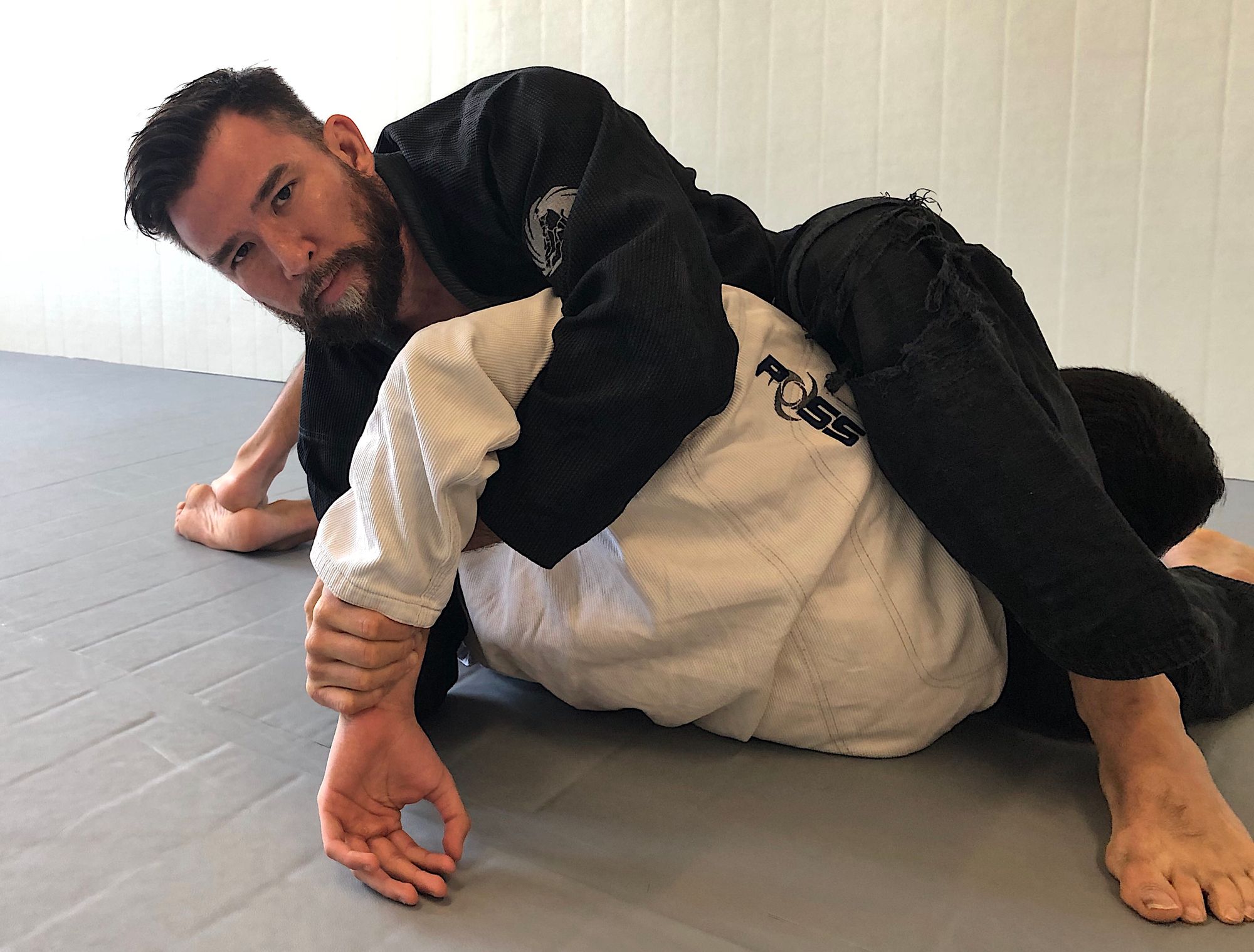
Born in Ohio and growing up in Florida, Chris Collins describes himself as "your average jock, playing all the team sports – doing all the boxing, doing all the wrestling." Being of half-Asian origin and a minority in his community, his ability to play sports allowed him to integrate more easily among his peers.
Growing up, he didn't have much interest in martial arts but aspired to become a professional football player. And playing football was not just a passion but also beneficial to his education. "I beefed up a whole lot just to get into college to play football. So I was really proud of that because my family would have never been able to afford to put me through college," he recounts.
But, as the years went on, Collins started doing the math in his head. According to studies, less than 0.5% of football players make it to a professional level – 6.5% of high school players make it to college to play football, and only 1.2% of those players will make it to the NFL.
In a strategic move, Collins decided to shift his focus, enlisting in the US Marines. He continuously developed his athleticism and practiced hand-to-hand combat and knife fighting there.
"While I was in the Marines, I was so focused on 'How can I be, you know, the best Marine I can be?'" he tells us. "'How can I be an asset that everybody needs and wants? And what skill set do you need to have to do that aside from just soldiering?'"
Be like water, my friend
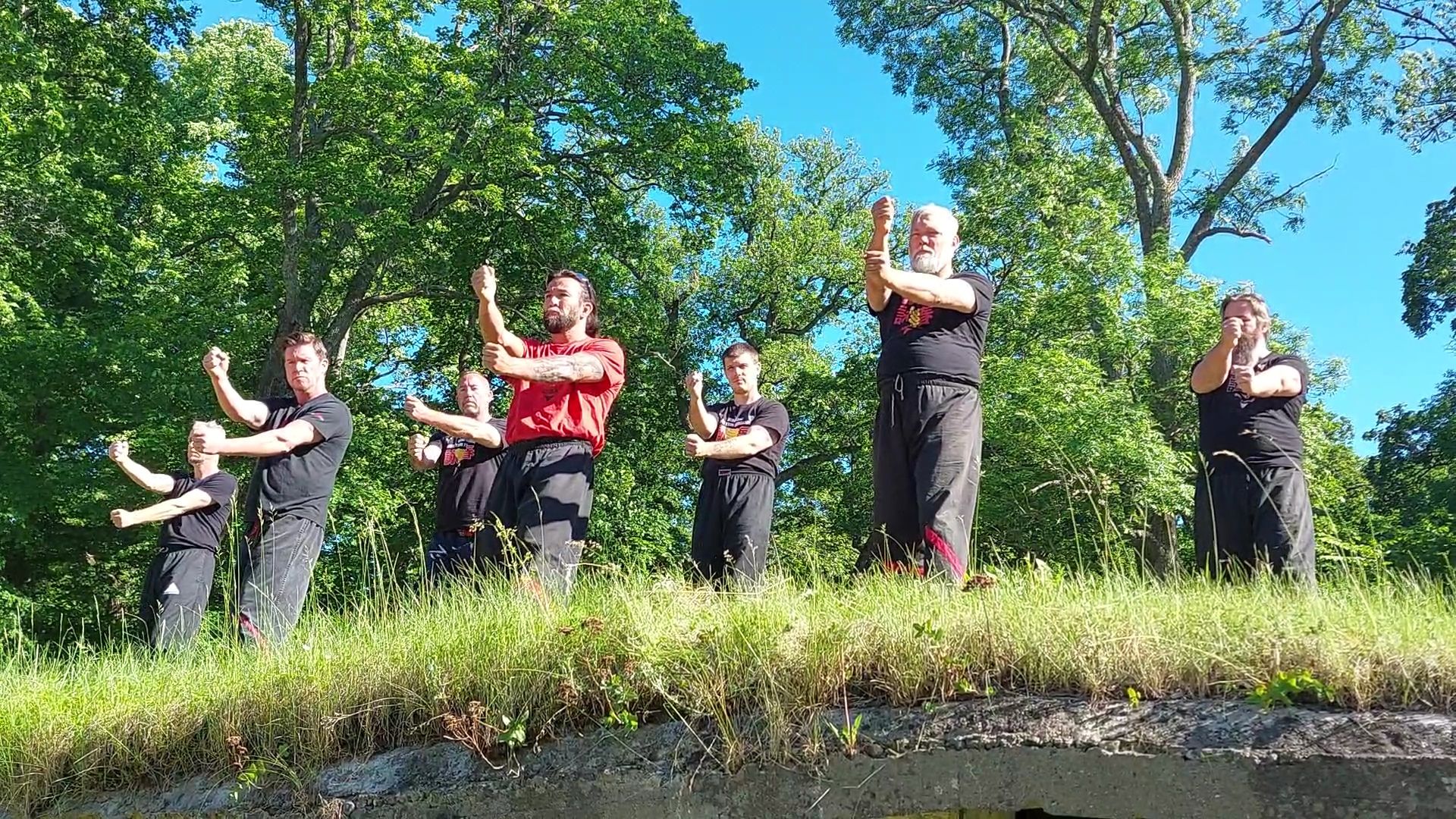
In a style reminiscent of "Karate Kid," Collins describes how he discovered Wing Chun for the very first time. Out visiting Yosemite National Park during weekends or leave, he came across an old man practicing the martial art. "I had no idea what it was. And one day, I walked over and said, 'Old man, what are you doing? What is this stuff?' and he said, 'Do you know Bruce Lee?'... 'Well, this is Wing Chun.'"
Impressed by the septuagenarian's dexterity and swiftness at his age, Collins followed along, learning beside the old man. He quickly became obsessed with the martial art and wanted to bring it back to his unit in Alabama. He noted that although the man was weak at his age, he possessed incredible agility and a remarkable range of movement. Collins couldn't help but imagine how someone in their 20s could use Wing Chun in close-quarter combat.
After a few years, he got permission to get into the IRR (inactive regular reserve) status and was able to go to Hong Kong to learn Wing Chun with the hopes of bringing it back to the Marines.
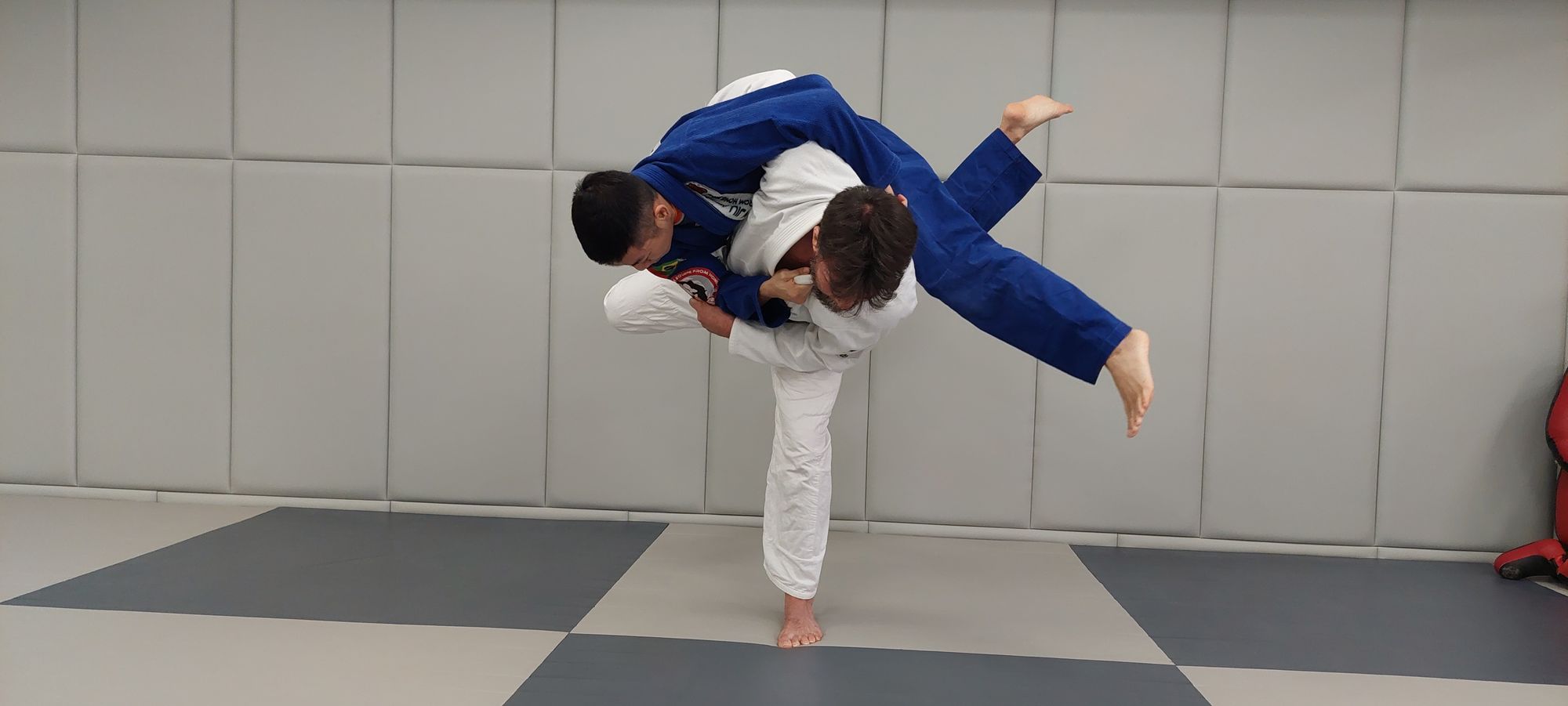
Collins initially flew into Hong Kong via the old Kai Tak airport with nothing but two bulky suitcases. These two suitcases were what he slept on for the first three months in Hong Kong. He had spent all his money on Wing Chun classes. But he was committed, making progress in the martial art for three and a half years before having to fly back to the United States due to 9/11.
Back at base, he coached from his unit, dedicating many hours to passing on what he had learned during his time in Hong Kong. It was a hit among the men in the Marines, and Collins started noticing that his peers would incorporate the center-based aspects of Wing Chun into their combat, like changing how they would set their gear.
Move forwards, never back
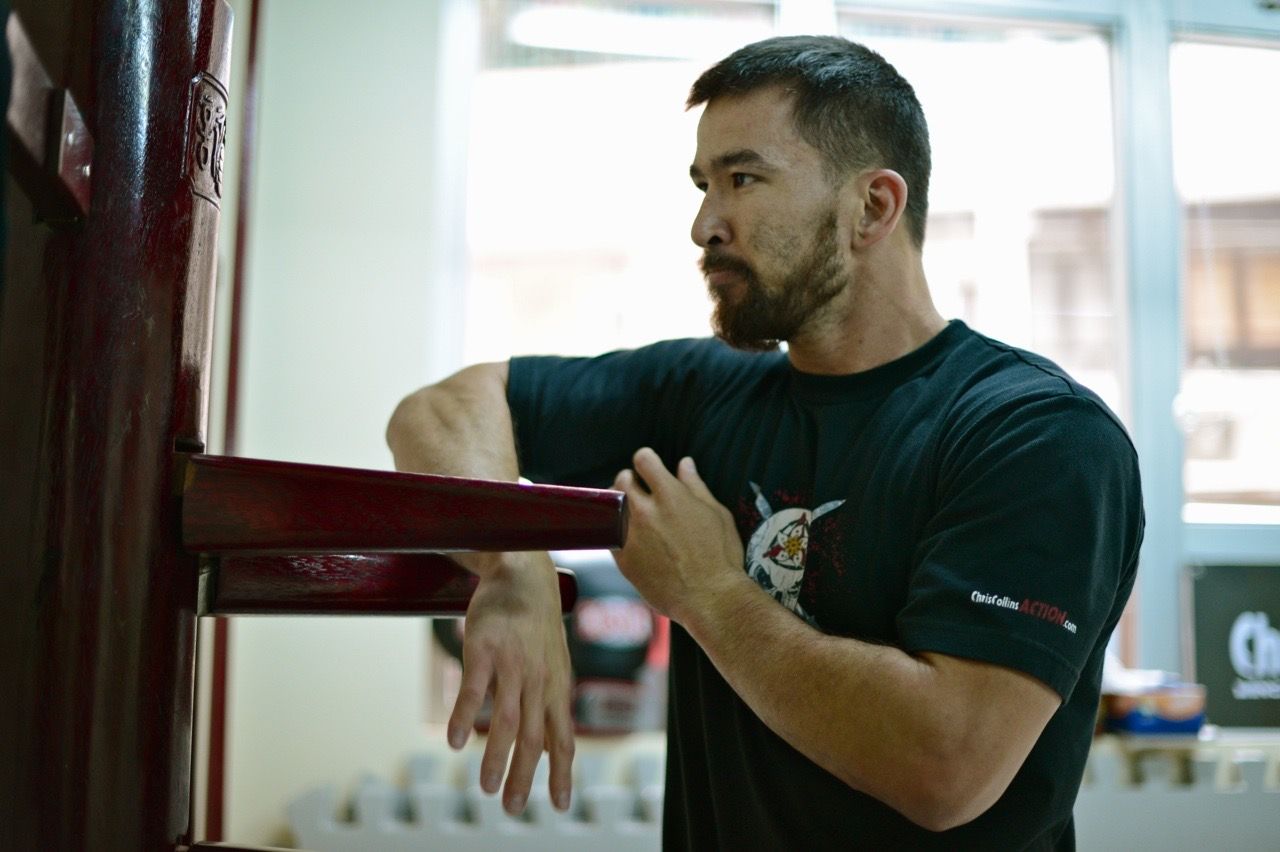
It was a story of love that brought Collins back to Hong Kong once more. After finishing his contract with the Marines, Collins turned to the next chapter in his life – marriage. Back when he was in Hong Kong, he met the future mother of his child.
After studying project management and helping his brother expand his business, he tried his turn as a businessman, humorously recalling how he would play golf to get the right connections. "It was fun, but it wasn't fulfilling," he said. "And that's the key to life, right? The key to life is to find what fulfills you, not something that just occupies your time and puts a little bit of money into your account."
Once he had his son, everything changed. He gained a new perspective on life. "If you're going to teach your children to live their dreams, to follow their dreams, you have to do the same," he says. "Like, why do kids love professional athletes? Because they follow their dreams. They're living their dreams."
He knew then that he needed to set an example for his son. He knew he had to return to Hong Kong to keep training and go full steam ahead with the martial arts.
Onwards to the silver screen
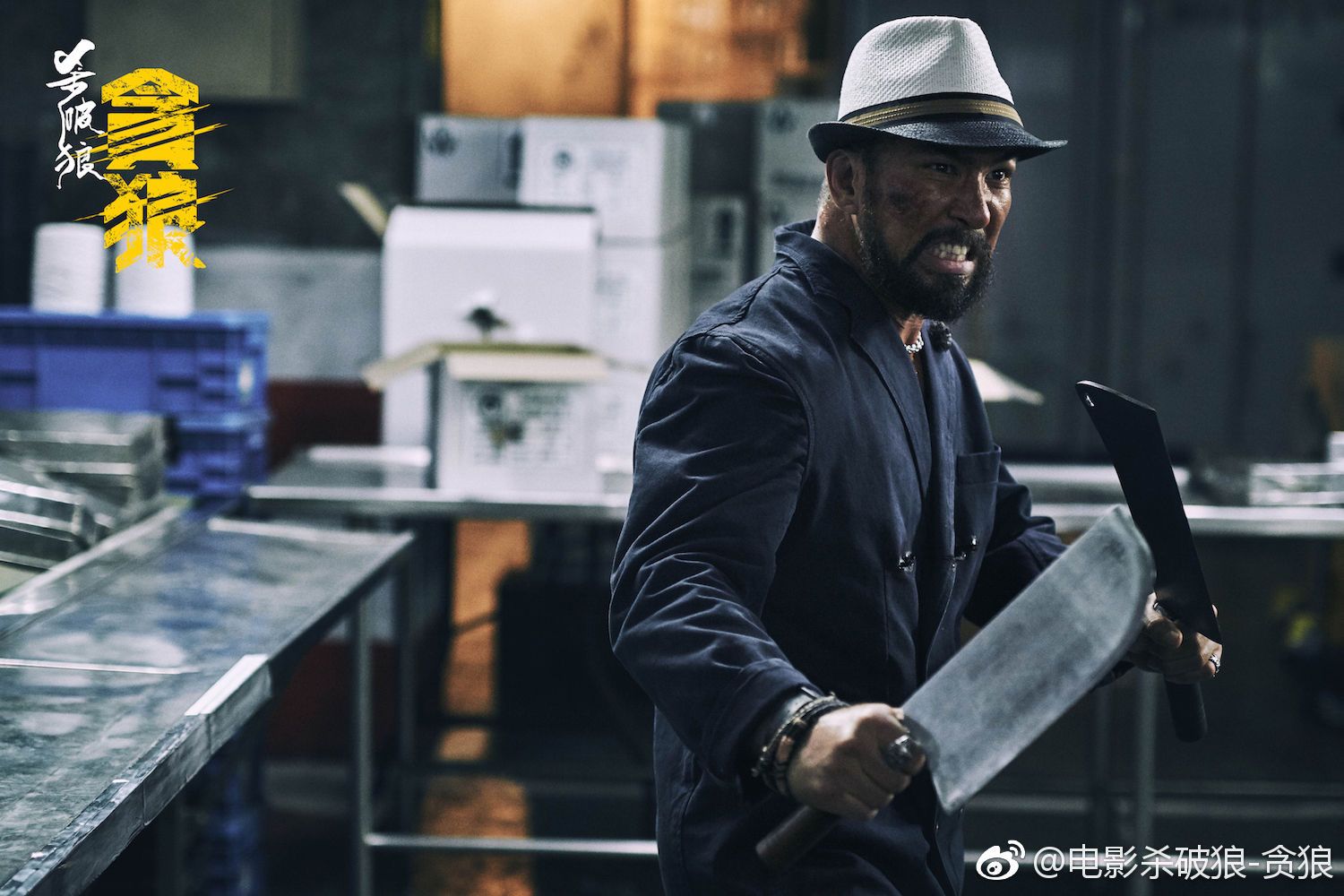
Collins coins his debut in movies as "purely accidental." In 1997, a few of his friends were dabbling in film and invited him to join them on set. Through the filming of "Gen X Cops," he met director Benny Chan and action director Nicky Li. But the hours were grueling, and after a quick dabble in modeling, Collins decided that the industry was not for him.
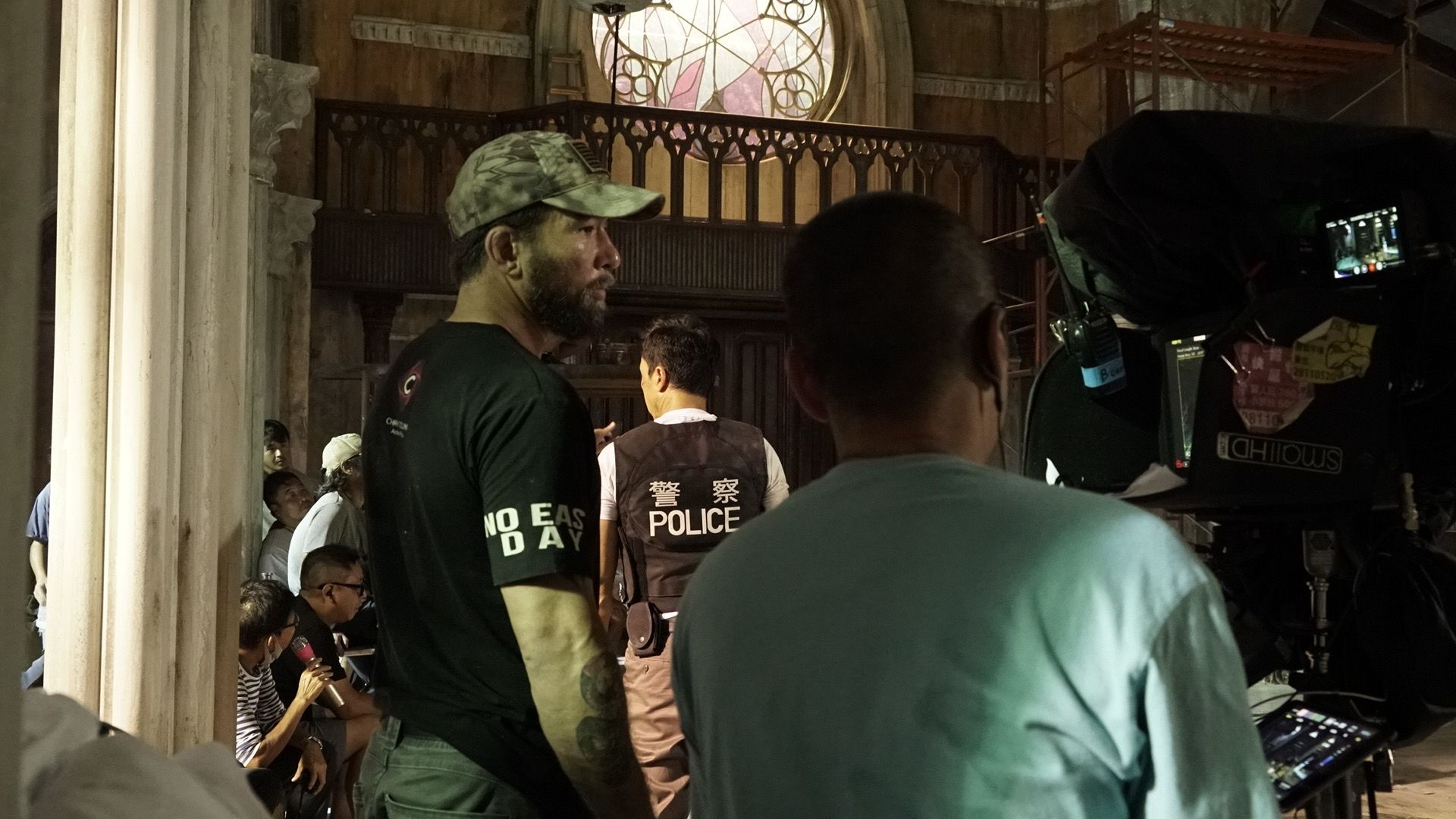
However, a few years later, he was contacted out of the blue by Nicky Li. At the time, Collins was running a security company and had uploaded a clip of firearms training onto YouTube. Li wanted Collins to help with action design, to which he was more than happy to lend his assistance. Benny Chan, who was coincidentally once more the director of that movie, recognized Collins. After watching his work in action, he gave him the part of the head henchman in the film.
Working with the likes of Lewis Koo, Cheung Ka Fai, Lau Ching Wan and Donnie Yen, Collins got his foot right into Hong Kong's movie industry, acting alongside the best in the field. His next movies were "Wolf Warrior," "Paradox," "Ip Man 4" and "Raging Fire," among many others.
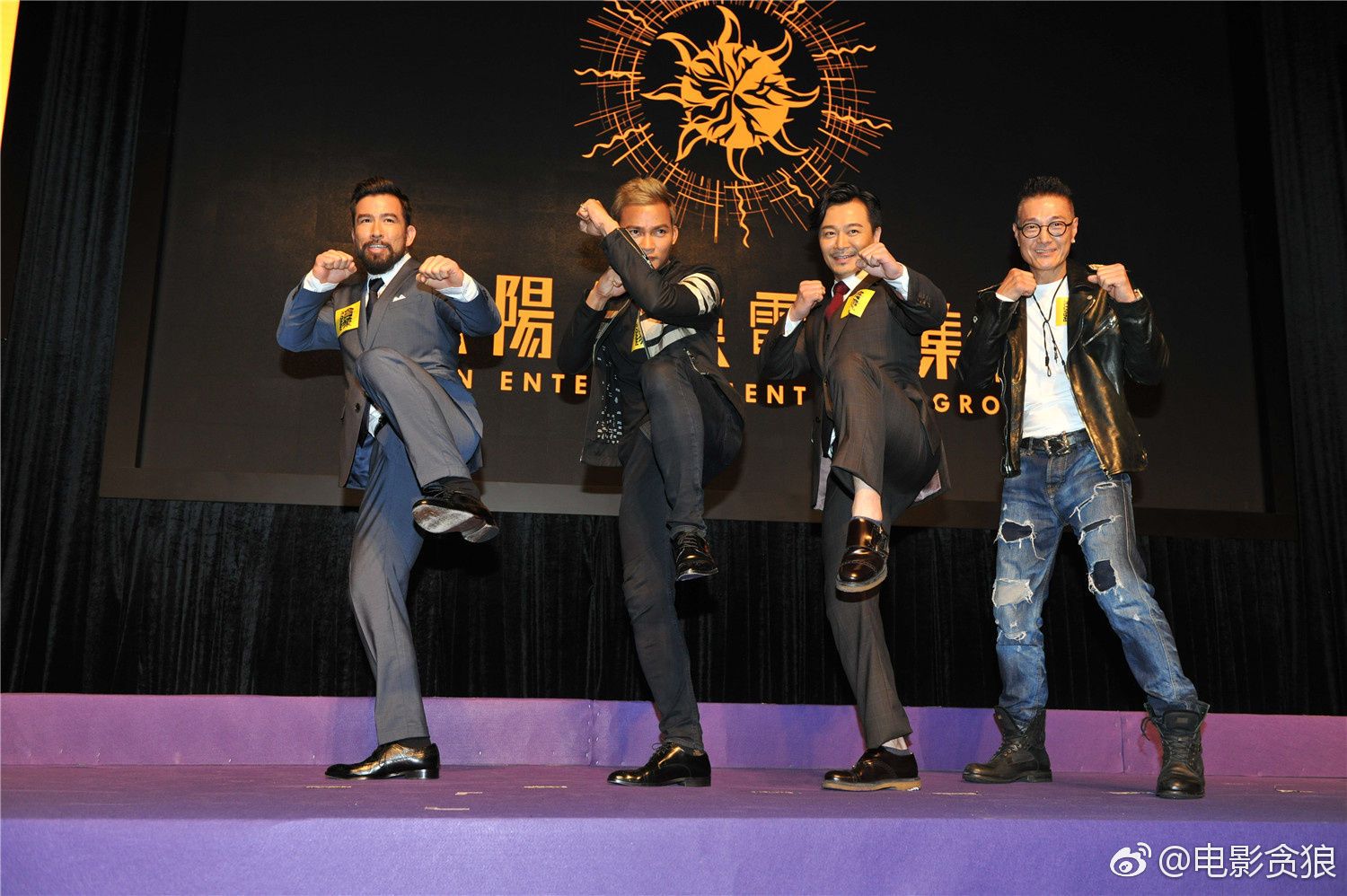
"So that's how I got into it. Just slowly, just hard work. Initially, it's just luck. I mean you've got to believe in a little bit of luck to get anywhere in life," says Collins. "And it was just meeting the right person at the right time. Getting introduced to it and then just putting my head down and just working, working, working, working." Collins once again thanks Wing Chun for his sensitivity to working in front of cameras, being aware of where they were placed, and working the angles on the scene.
But Collins was not just acting; he also trained actors to fight. When asked about the difference between training an actor and a student, Collins exclaims, "It's huge!"
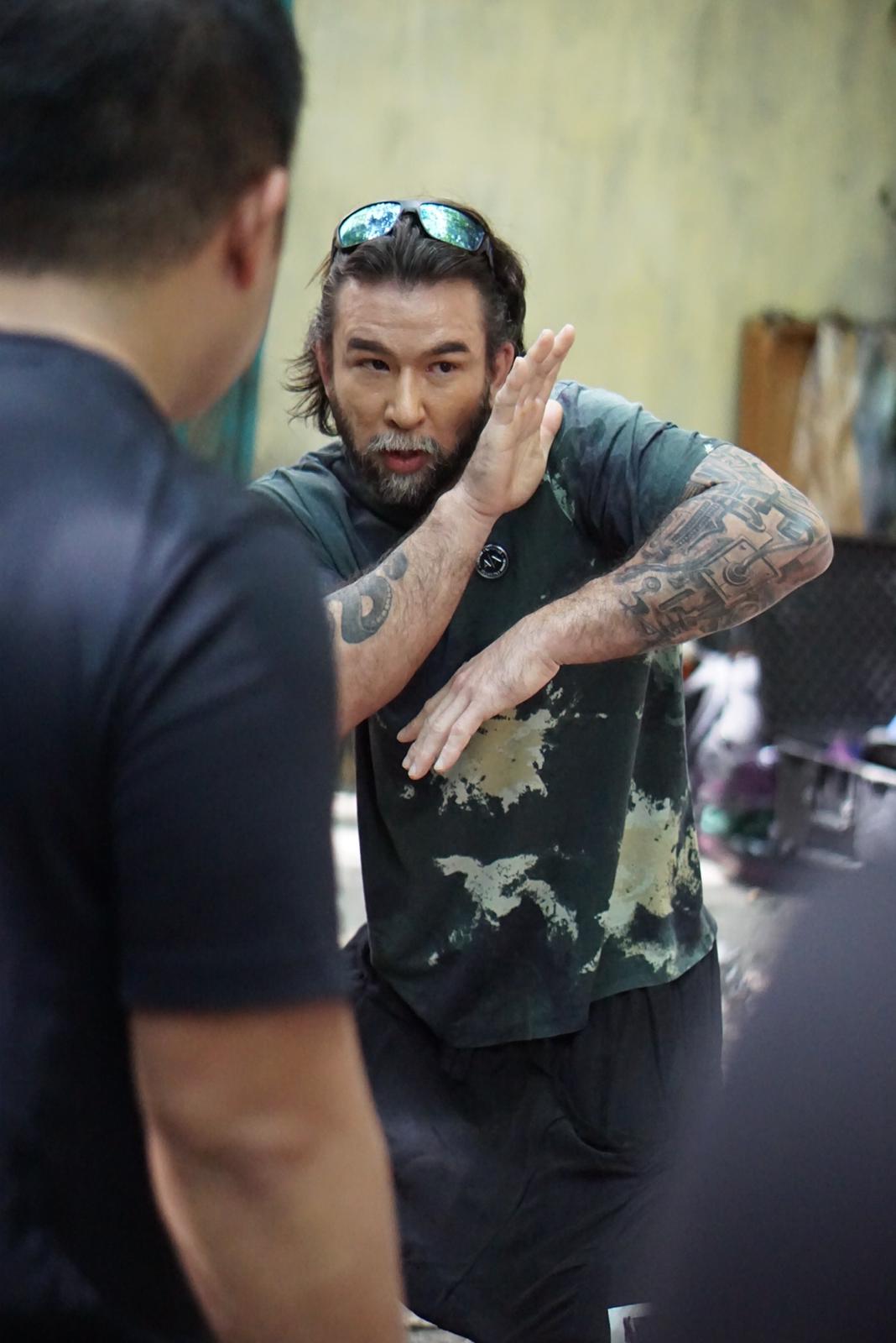
With students, martial arts is a step-by-step process of many tiny technical intricacies that may not be apparent to the naked eye. However, in movies, actions need to be exaggerated in order to be captured by the cameras. This is paired with amplified facial expressions and sound effects to create a good scene.
An art collector
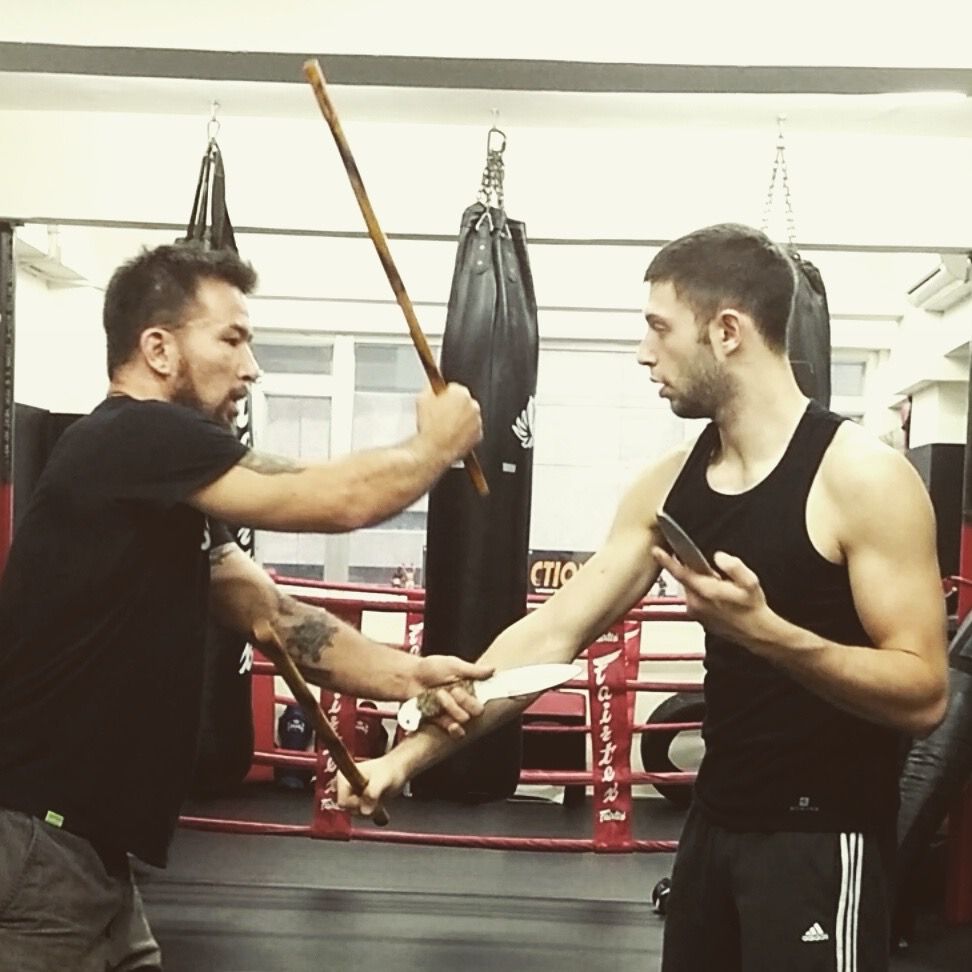
Wing Chun isn't the only martial art that Collins has mastered. He also practices Kali, the national martial art of the Philippines. Those practicing Kali can use weapons (often with sticks or knives) or, once more advanced, practice it hand to hand. He went to the Philippines to learn the art and trained for seven years straight with the top Kali masters in the country.
"I liked it because it is a very realistic system … people out there fighting to the death and the system is being used. So that means it's evolving," says Collins. "It's becoming more and more effective. And systems like that is what we need when we're learning, when we're teaching, when we're training, to have a true understanding of what works and what doesn't work."
Brazilian jiu-jitsu is another martial art that Collins has under his belt. This style is a practice that focuses on the physics of the human body rather than strength. "Right now, I'm probably the most obsessed with jiu-jitsu," he says.
"The beauty of it is that you don't need to rely on punching and kicking and dealing with strikes … but it's how to make it to where people don't have to punch you so that you can kind of end the find in a very gentle way – hence the meaning 'the gentle art.' And I find it very attractive." Collins acknowledges the beauty and intimacy of martial arts, showing his appreciation for the bond it creates among the practitioners.
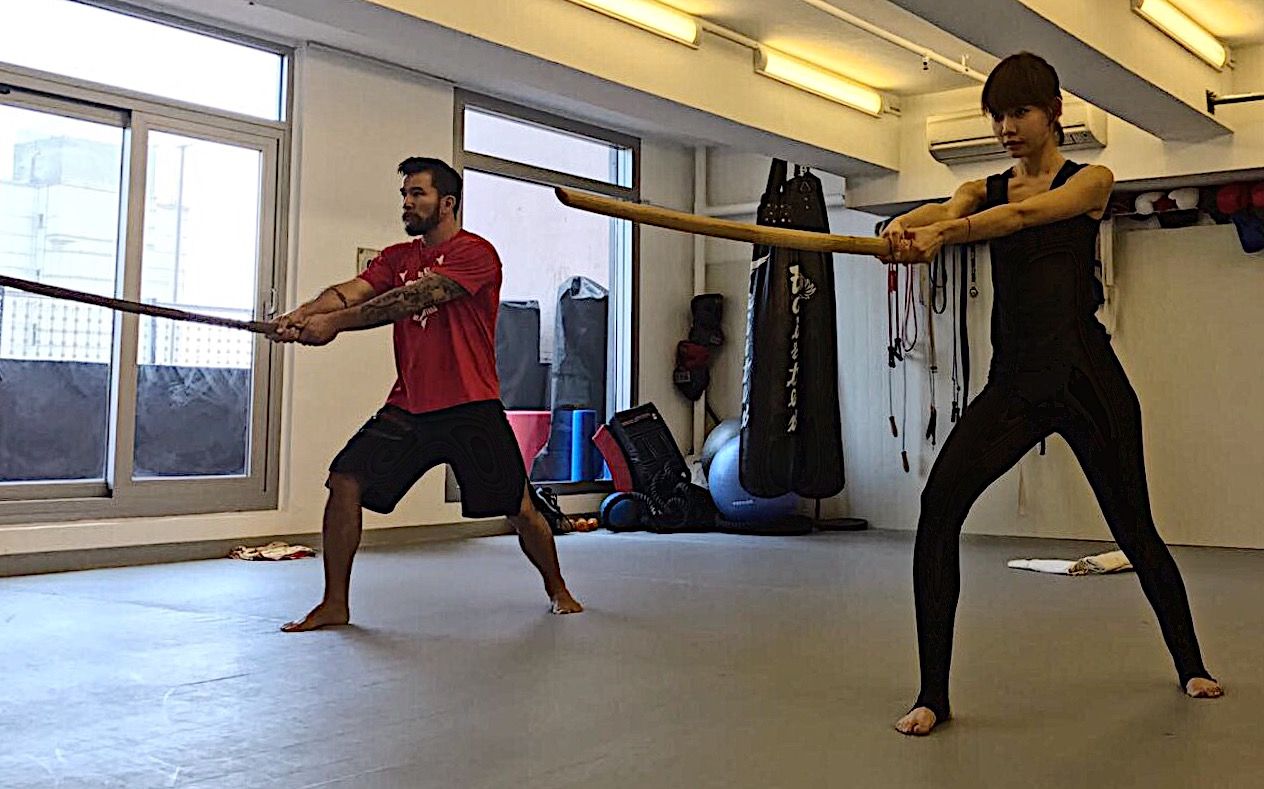
When asked about how martial arts has affected him and his character development, Collins admits that Wing Chun greatly changed how he deals with situations. While in the past, he would base most of his understanding on his athletic abilities, he learned that he needed to change the way he thinks and his behaviors to flow with a situation. Doing that changed everything in his life.
"You don't force things to happen; you learn to kinda go with it," he says. "But when you go with things, like go with force, it's not that you just completely give up. But you give into it so that you can find another way. You never want to go backwards, but you don't always have to go directly at a person. Otherwise, you're going against the forces.
"I want to really understand it [jiu-jitsu and Wing Chun] and be clear and reach that infinite mindset, where I've reduced uncertainty, and I've elevated certainty. So, I've minimized surprise, and I've elevated predictability," says Collins about reaching a skill level in his martial arts.
The infinite mindset is the act of playing a game with the goal of keeping it going for as long as you can so that you can keep playing. He explains that he aims to maintain optionality so he can continue fighting without any hesitation, delays, false movements or mistakes.
The ethics of martial arts
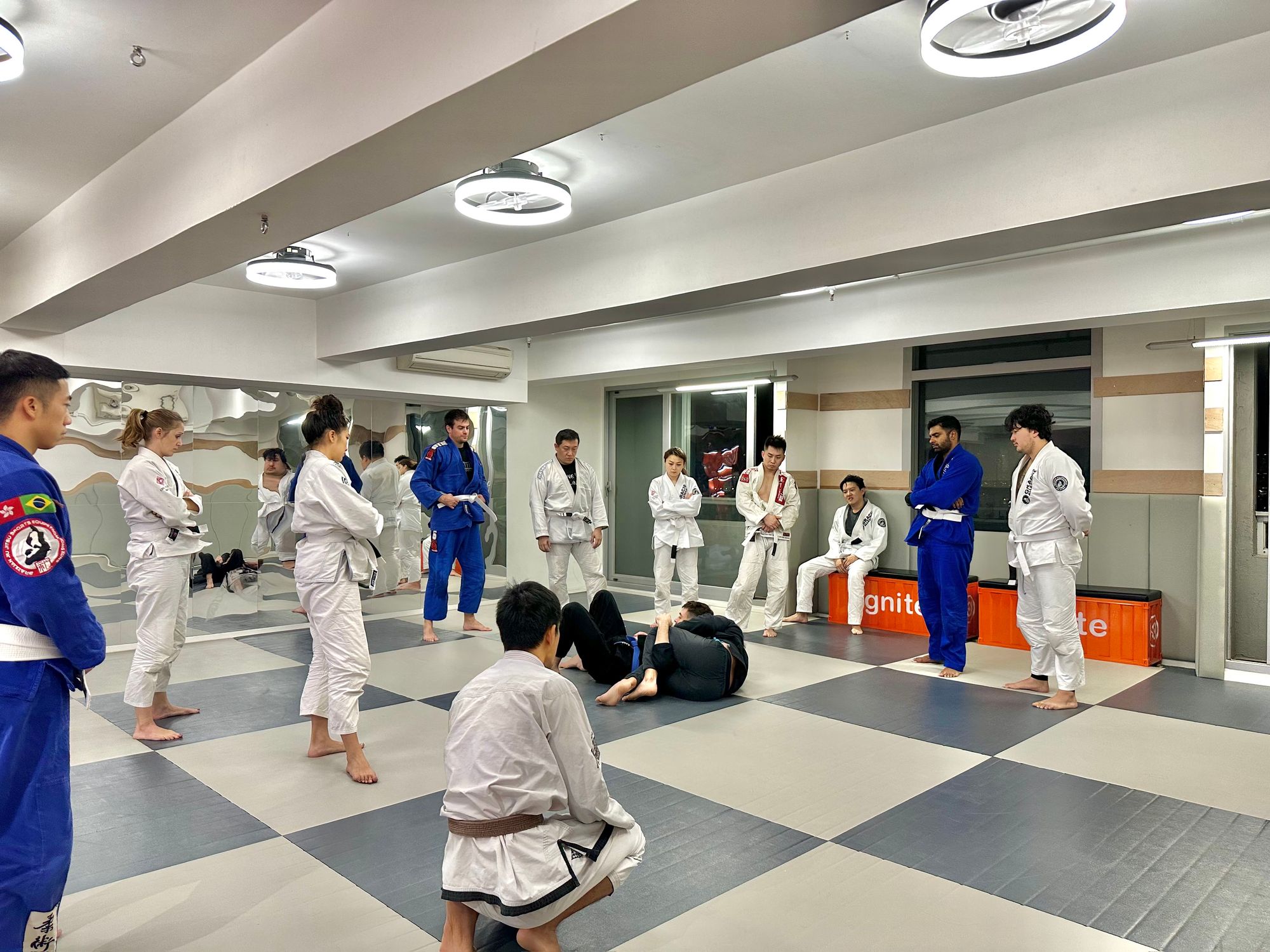
"Early on, when I first started teaching in Hong Kong, I was the only Westerner teaching Chinese kung fu, teaching Wing Chun," Collins says. He admits that he was challenged a lot by rival schools, having to beat them at martial arts in order to maintain his position and status.
When asked about some people's potential non-ethical intentions, Collins replies by saying. "I may only teach you one or two techniques during the class, so those people, they don't stay. You know, they're quick to leave because they don't have any interest in learning something." He emphasizes the many arduous hours having to drill and practice the same techniques, confidently saying that those who have bad intentions don't have enough interest in learning them.
Throughout the years, he had to become very good at identifying people's intentions when they entered his gym. "Usually on the mats, I see people look a certain way, like, the facial features, the body types. They will typically have all the same questions, same mannerisms, same type of character and personality traits," he says. "And I've tested this throughout the years. Like, I know exactly what this person is thinking, what he wants to say, what his problems are going to be."
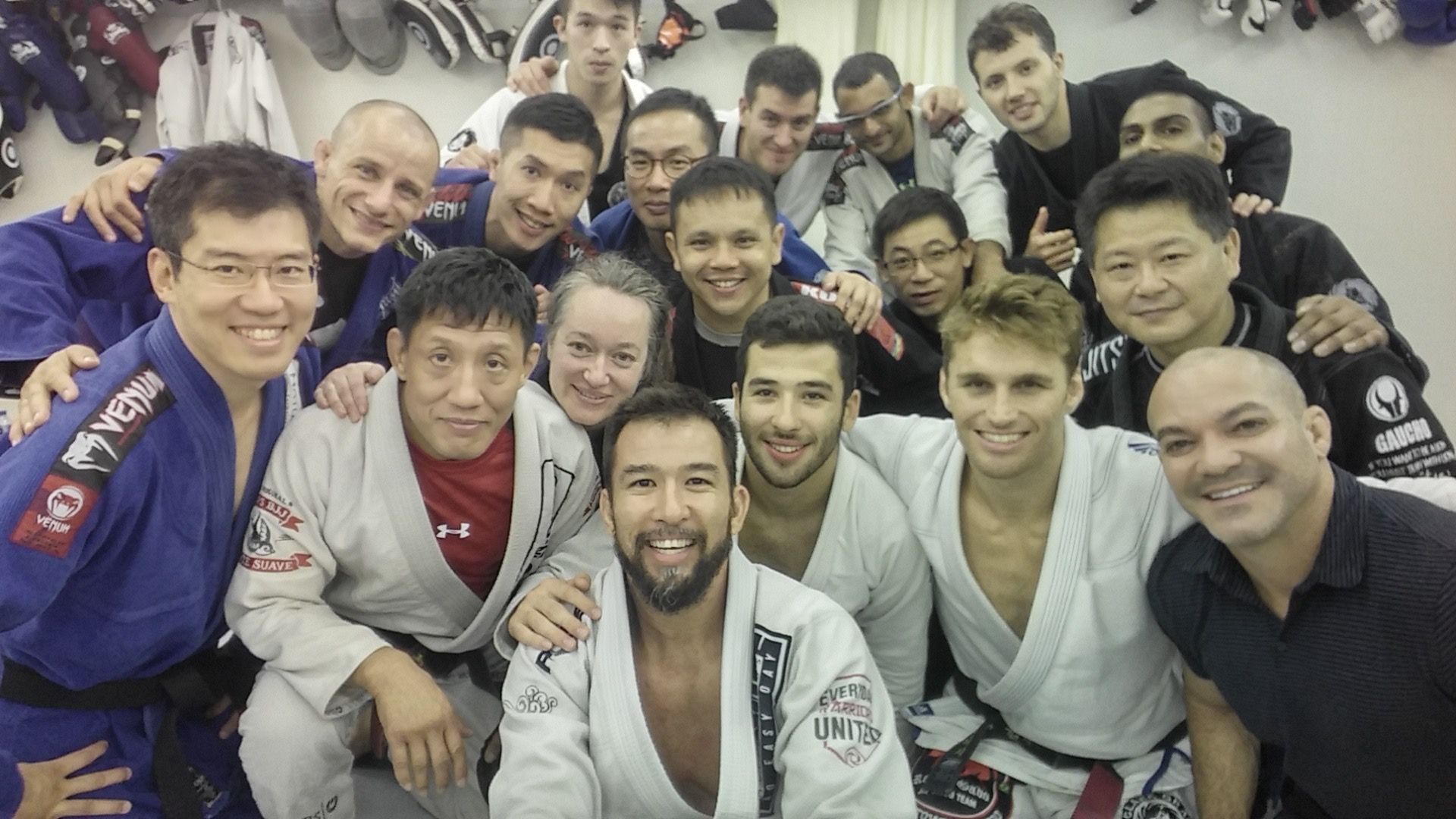
Collins describes coaching his students with an immense amount of passion. He talks about the importance of challenging oneself and facing potential situations during practice where one might fail.
"Putting them under extreme stress in a training environment … because that's what builds our characters. You know, never pray for an easy life, right? Always pray for a hard life because that's what's going to make us better. That's gonna make us stronger.”
For the students that are there to change and learn, its easy for Collins to reminisce on his own journey. “I am also a flawed man, and I make my own mistakes, but I usually will go back to my martial arts theories, philosophy, strategies, tactics, and I will think about how I can relate that to my current situation and how I could have improved it,” he says. “How I could have avoided getting into a situation like that, recovering from it, and then going back on the attack, so to speak.
“I always say that Wing Chun changed my life, and jujitsu saved my life … because it taught me how to think differently.”

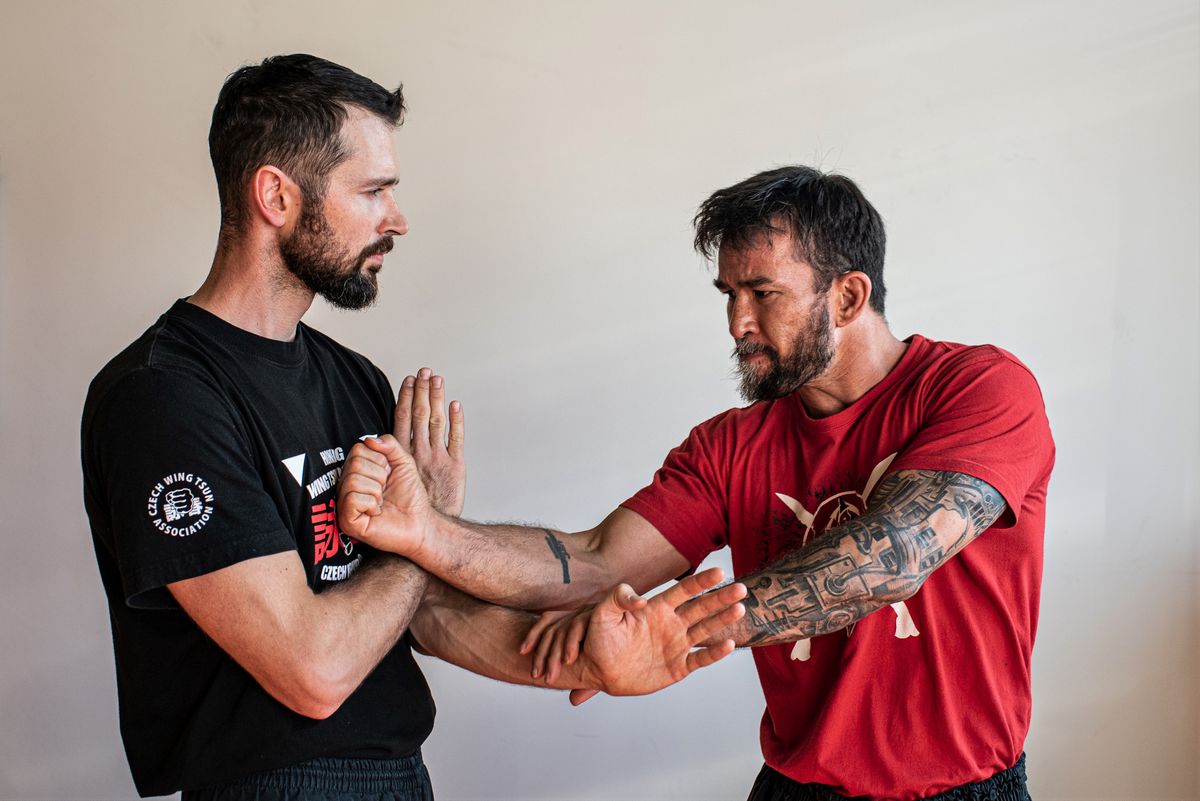



Comments ()